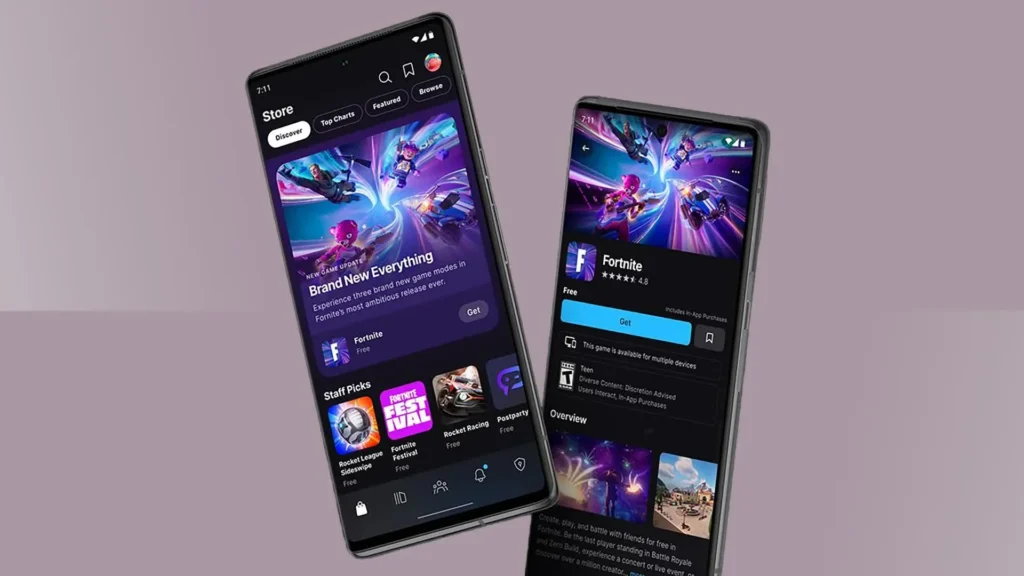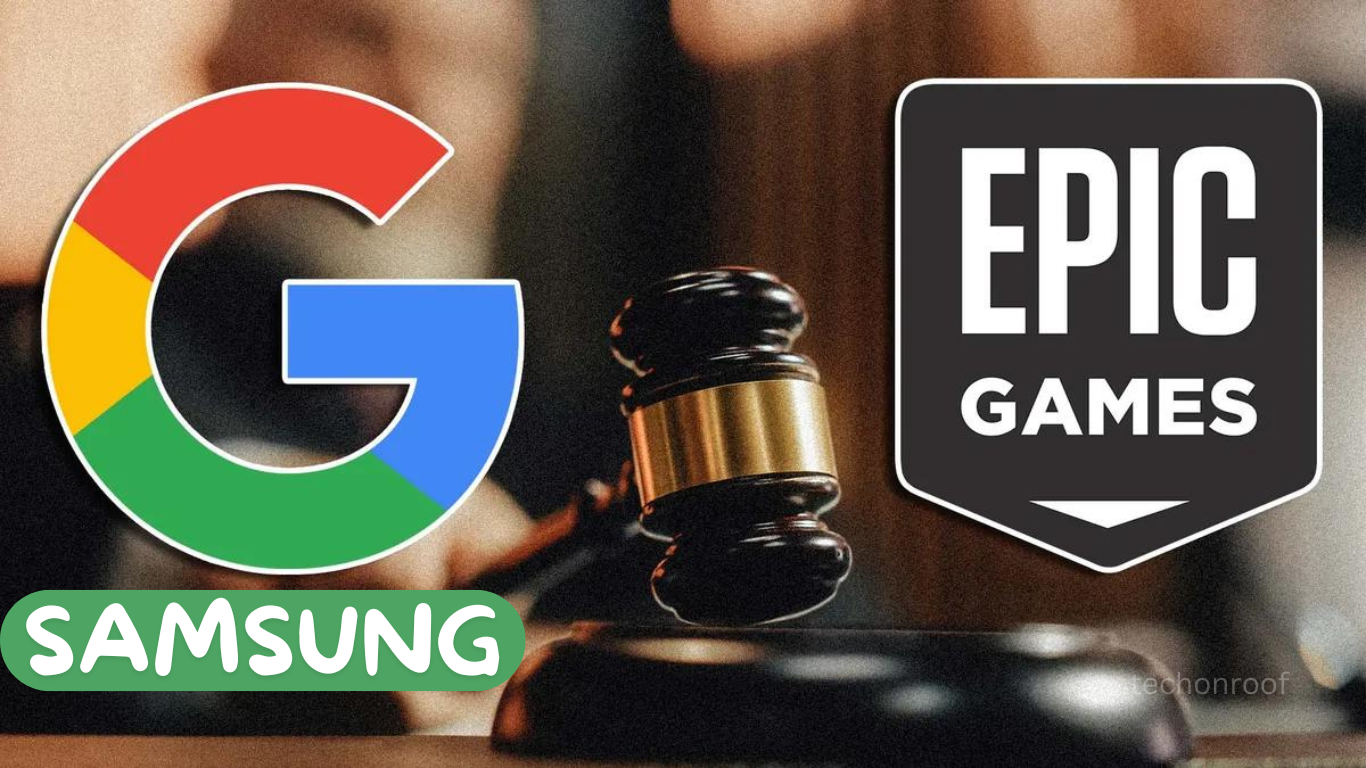Four years after Epic Games hits Google and Samsung for allegedly running an illegal app store monopoly and won the case in December Epic is back in court. This time, the gaming giant is suing both Google and Samsung, accusing them of working together to block competition from third-party app stores.
Samsung’s Auto Blocker Feature at the Center of the Lawsuit
The main issue in this lawsuit revolves around Samsung’s “Auto Blocker” feature. This feature, which is turned on by default on new Samsung phones, stops users from installing apps unless they come from “authorized sources.” These authorized sources only include the Google Play Store and Samsung’s app store. Epic claims that other app stores have no way to become authorized, making it harder for users to install apps from competing platforms.
Read More: My PS4 is Stuck in Safe Mode: A Gamer’s Friendly to Fixing It Fast
Epic Games’ App Store Faces New Challenges
When Epic first sued Google and Apple back in August 2020, it didn’t have its own mobile app store. However, on August 16th, 2024, Epic launched the Epic Games Store on Android and on iPhones in the European Union, where new regulations forced Apple to allow alternate app stores. But just before this launch, Epic claims that Samsung made its Auto Blocker feature even more restrictive.
According to Epic, the process to install third-party app stores on Samsung phones is now much more difficult, involving what they describe as a “21-step process.” Although this number might be exaggerated Epic’s website suggests it’s only four steps the process is still cumbersome enough to discourage users from installing apps from other stores.
A Complicated Process to Disable Auto Blocker
Turning off Samsung’s Auto Blocker is not straightforward. Even if users search for how to disable it, the phone doesn’t provide clear instructions. When attempting to turn off Auto Blocker, users are met with multiple warnings, claiming that the feature “keeps your phone safe from threats and suspicious activity.”
Epic argues that this claim is misleading, as Auto Blocker doesn’t actually check the safety of individual apps before blocking them. According to Epic CEO Tim Sweeney, the feature is designed to limit competition, not protect against malware.
No Evidence of Google-Samsung Collusion Yet
Although Epic suspects that Google and Samsung collaborated on this feature, Sweeney admits that the company doesn’t yet have proof of this. He hopes that further details will emerge during the legal discovery process, as was the case in Epic’s previous lawsuit against Google.
Interestingly, Sweeney also mentioned that he didn’t directly ask Samsung if the Epic Games Store could become an “authorized source” on their phones. He said this is because Epic’s fight is not just for itself, but for all app developers.
Failed Negotiations with Samsung
Before filing the lawsuit, Sweeney claims that Epic tried to negotiate with Samsung. They asked Samsung to either turn off Auto Blocker by default or to create a fair process for third-party app stores to be authorized. When the two companies couldn’t agree on a solution, Epic decided to take legal action.
Samsung and Google Respond
Neither Samsung nor Google would confirm if they worked together on the Auto Blocker feature or if the feature actually scans apps for threats. Samsung did clarify that Auto Blocker is not secretly turned on. Users can turn it off during the phone’s initial setup if they choose.
Google dismissed the lawsuit, calling it “meritless.” They emphasized that Android manufacturers are free to take steps to protect their users.
Has Epic Been Harmed by Auto Blocker?
It’s unclear if Epic has been directly harmed by Samsung’s Auto Blocker so far. Only two new Samsung phones have launched since the feature became default. Sweeney mentioned that in the past, similar efforts by Google to make it harder to install third-party apps resulted in many users giving up during the installation process, though he doesn’t have specific data to prove that Samsung’s feature is causing the same issue.

Epic’s new mobile app store has reached 10 million installs, but Sweeney says the company is aiming for 100 million by the end of the year. He described the current numbers as “traction but not an enormous amount.”
Legal Precedent and Potential Impact on Epic v. Samsung
In the previous case of Epic v. Google, Epic argued that Google’s policies made it too difficult for users to access rival app stores. Although the jury didn’t rule specifically on the “Unknown Sources” feature that created obstacles for third-party apps, they did conclude that Epic was harmed by Google’s overall behavior.
Epic is seeking a jury trial in this new lawsuit. Judge James Donato, who oversaw the previous case, is expected to issue his final ruling soon. That decision could influence how the new lawsuit against Samsung unfolds. For instance, if the judge forces Google to allow third-party app stores like Epic’s on its platform, the significance of Samsung’s Auto Blocker could diminish.
Epic’s Broader Fight for Developers
Sweeney emphasized that Epic’s fight is not just about getting special treatment for itself. He explained that settling past lawsuits might have been easier if Epic had only fought for its own interests. However, Sweeney believes that doing so would have let down other developers.
While Epic hasn’t committed to suing other companies that create barriers for third-party app stores, Sweeney said the company is keeping a close eye on these practices. So far, only Samsung has implemented such restrictions, and Epic is determined to keep it that way.





